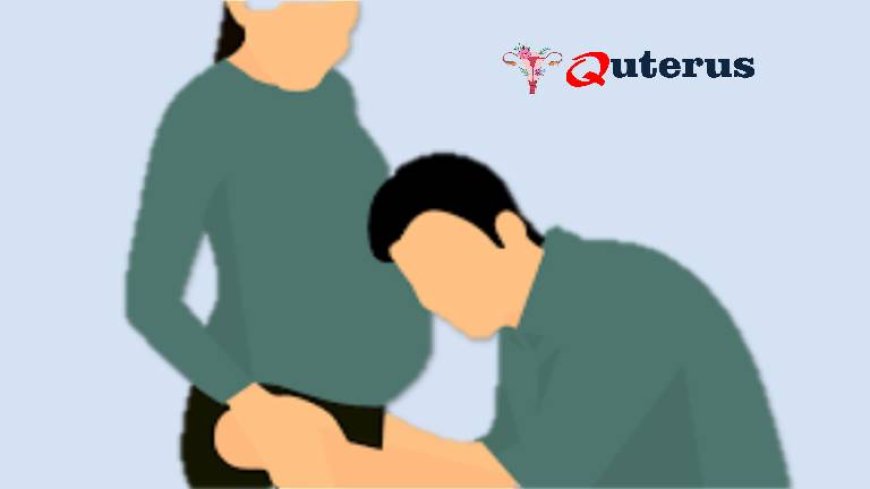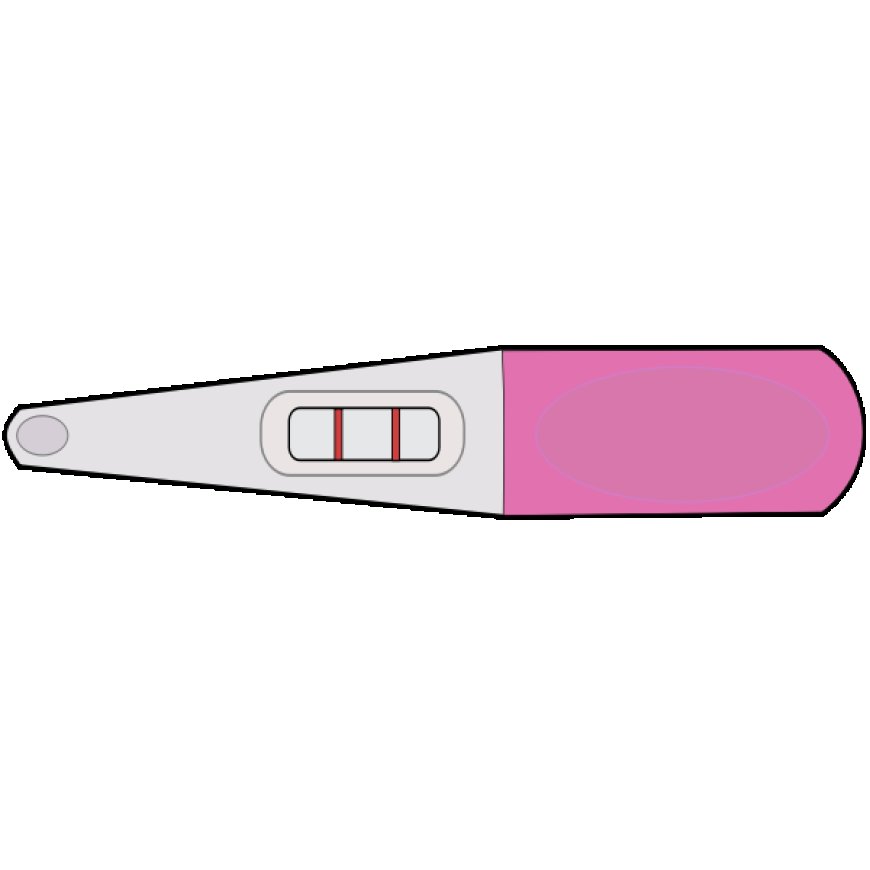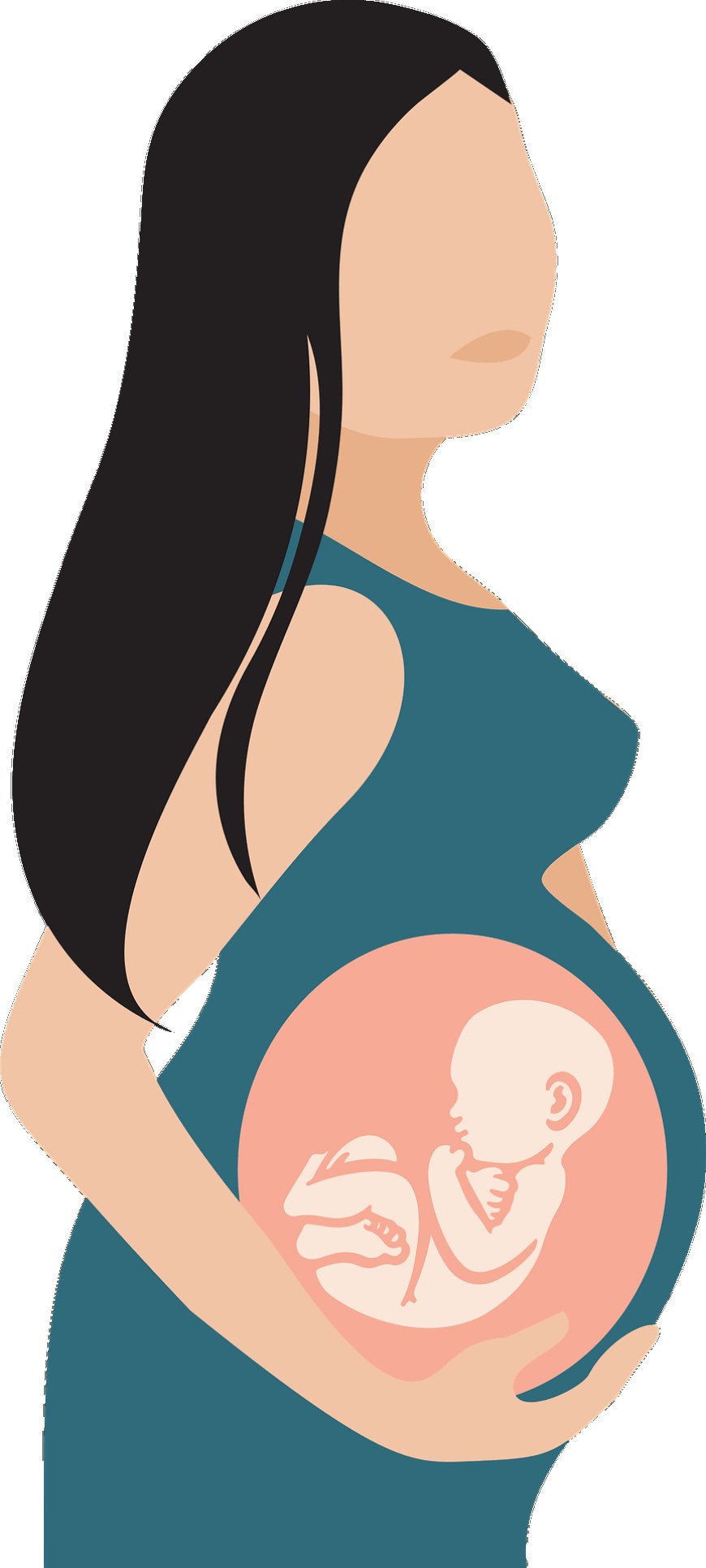what is the definition of pregnancy ?
pregnancy is defined as the state of having a developing embryo or fetus within the female reproductive system. Pregnancy occurs when sperm from a male fertilizes a female egg, which then implants itself in the uterus lining and begins to grow and develop.

what is the definition of pregnancy ?
About Pregnancy
Pregnancy is a state where a woman carries a developing fetus within her uterus. It is a physiological process that occurs in female mammals, including humans, that starts with fertilization and results in the delivery of a baby. During pregnancy, the woman's body undergoes various physical and hormonal changes that create an environment for the pregnancy to take place. These changes include the formation of a placenta, which provides nutrients to the developing fetus, and the production of hormones that help to maintain the pregnancy.
The duration of pregnancy in humans is approximately nine months, and it is divided into three trimesters. The first trimester is the most crucial period of development as the organs and body systems start to form. The second trimester is marked by the developing fetus's growth, and the third trimester features the final stages of development and the preparation for childbirth.

Pregnancy can be challenging, and women may experience various symptoms, such as nausea, fatigue, mood swings, and other discomforts. However, it is an important milestone in a woman's life and has significant implications for the health of the mother and baby. With proper prenatal care, education, and support, women can have a healthy pregnancy and successful birth.
Learn from the video also pregnancy
what is the definition of pregnancy in science?
pregnancy is defined as the state of having a developing embryo or fetus within the female reproductive system. Pregnancy occurs when sperm from a male fertilizes a female egg, which then implants itself in the uterus lining and begins to grow and develop. This process usually takes about 9 months, but can vary depending on various factors such as overall health, age, and medical conditions. During pregnancy, there are various physical, hormonal, and emotional changes that take place in the body in preparation for childbirth. The end of pregnancy is marked by the delivery of the baby and is considered a major landmark event in a woman's life.

what is the definition of pregnancy hormones?
Pregnancy hormones refer to a group of hormones that are responsible for various physiological changes during pregnancy. These hormones are produced by the placenta, ovaries, and other glands, and they play an essential role in supporting the growth and development of the fetus and preparing the mother's body for childbirth.
Some of the most important pregnancy hormones include :
Human chorionic gonadotropin (hCG) : This hormone is produced by the placenta and is responsible for maintaining the pregnancy and supporting the growth of the fetus.
Progesterone: This hormone is produced by the ovaries and placenta and is essential for preparing the uterus lining for implantation and supporting the pregnancy.
Estrogen : This hormone is produced by the ovaries and plays an essential role in fetal growth and development, including the development of the lungs, brain, and bones.
Relaxin : This hormone is produced by the ovaries and is responsible for relaxing the ligaments and joints in the pelvis, which prepares the body for childbirth.
Oxytocin : This hormone is produced by the pituitary gland and is responsible for inducing labor and stimulating milk production after childbirth.
These pregnancy hormones work together to prepare the mother's body for childbirth, support the growth and development of the fetus, and ensure a healthy pregnancy and postpartum period. They also regulate the physiological changes that occur during pregnancy, such as weight gain, changes in the skin and hair, and increased blood volume and circulation.
 Frequently Asked Questions
Frequently Asked Questions
What is normal position of uterus ?
Where is the uterus in your body? Your uterus is in your pelvis between your bladder and rectum. It's supported by your pelvic floor muscles and perineal body. Ligaments in your pelvis, lower back and hips also help hold your uterus in place.
What happens during uterus?
Functions of the uterus include nurturing the fertilized ovum that develops into the fetus and holding it till the baby is mature enough for birth. The ferlized ovum gets implanted into the endometrium and derives nourishment from blood vessels which develop exclusively for this purpose.
How painful is uterus?
The pain occurs when the muscles of the uterus (womb) contract or tighten. It often feels like cramping or a heaviness in the pelvic area, lower back or stomach. Despite it being a common feature of getting your period, if the pain is severe, it could be an indicator of something more serious, such as endometriosis.
Can uterus be removed?
A hysterectomy is a surgical procedure to remove the womb (uterus). You'll no longer be able to get pregnant after the operation. If you have not already gone through the menopause, you'll no longer have periods, regardless of your age. It's more common for women aged 40 to 50.
Which uterus is best for pregnancy?
Having an anteverted uterus is safe for pregnancy. An anteverted uterus will not impact your pregnancy, labor, and delivery. An anteverted uterus will grow to accommodate your baby and does not have any pregnancy risks.
How strong is the uterus?
The uterus is the strongest muscle in the body by weight. The uterus has multiple layers of muscle tissue that run in every direction, spiral together, and are ultra-strong. A laboring uterus exerts incredible pressure to push a baby out into the world, and is the strongest force exerted by any muscle in the body.
Does uterus size increase with age?
Our results show that the uterus undergoes changes in the size of all three dimensions during a woman's lifespan. The length increases to a mean of 7 cm and decreases again after the age of 40, suggesting that mechanisms other than menopausal estrogen depletion account for this shrinkage.
Have a baby without a uterus?
Pregnancy after a hysterectomy is extremely rare but can occur, leading to a potentially life-threatening medical condition called an ectopic pregnancy. This is when a fertilized egg implants outside of the uterus. Once you undergo a hysterectomy, you cannot get pregnant.
Can you live without a uterus?
“Most hysterectomies are done laproscopically, with the option to keep the cervix,” Harkins says. “Removal of the uterus does not necessarily include removal of the ovaries.” Living without it: Without a uterus, a woman cannot physically deliver a child nor will she menstruate.
How many uterus does a woman have?
In a female fetus, the uterus starts out as two small tubes. As the fetus develops, the tubes normally join to create one larger, hollow organ — the uterus. Sometimes, however, the tubes don't join completely. Instead, each one develops into a separate structure.
Where is the female uterus area?
Also called the womb, the uterus is a hollow, pear-shaped organ located in a person's lower abdomen, between the bladder and the rectum. Ovaries. Two female reproductive organs located in the pelvis.

We provide you with authentic, trustworthy and revelant information

Have issue with the content?
 Disclaimer
Disclaimer
The information given on our website www.uterusq.com is being posted only for the purpose of knowledge and information, before using them, choose them completely and check the correctness with your subject matter expert. We (www.uterusq.com) have no responsibility for any kind of loss.







